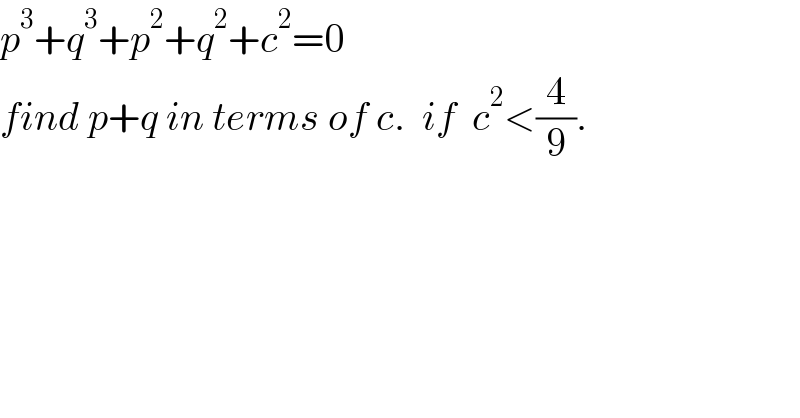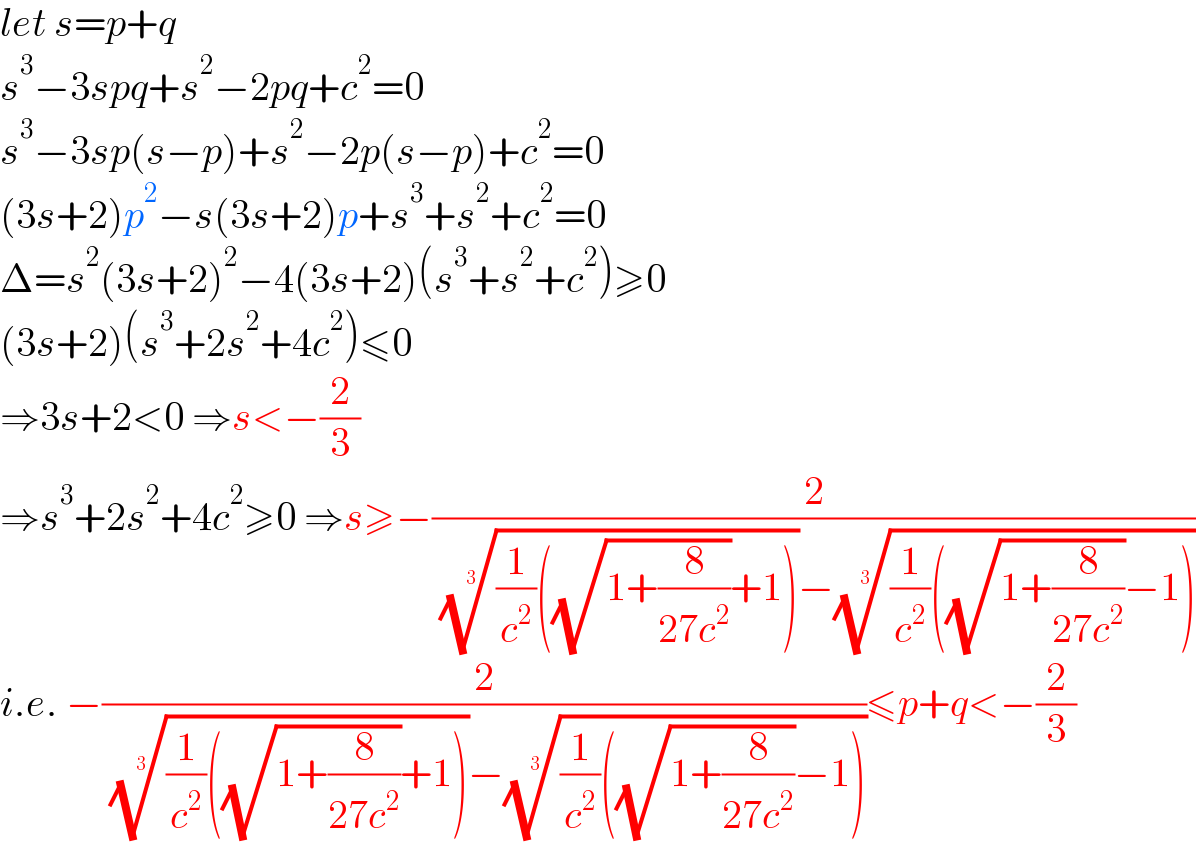
Question and Answers Forum
Question Number 175462 by ajfour last updated on 30/Aug/22

Commented bymr W last updated on 01/Sep/22

Commented byajfour last updated on 01/Sep/22

Commented bymr W last updated on 01/Sep/22

Answered by mr W last updated on 04/Sep/22

Commented byTawa11 last updated on 15/Sep/22

